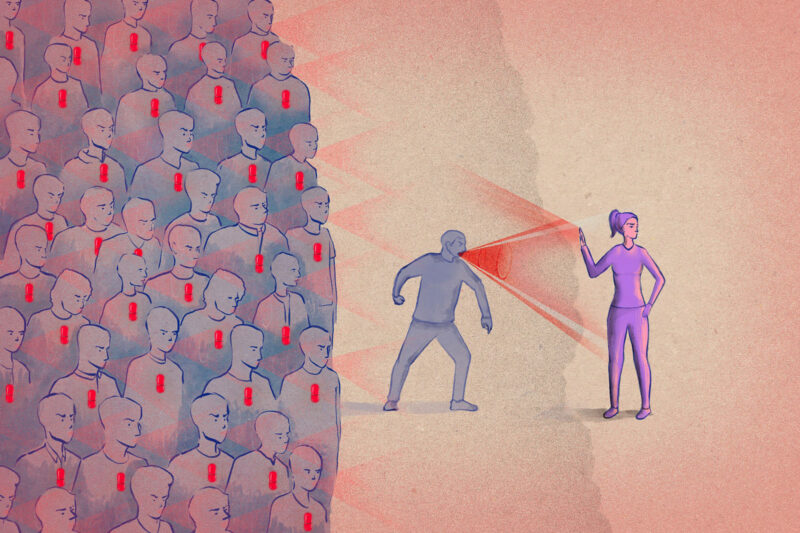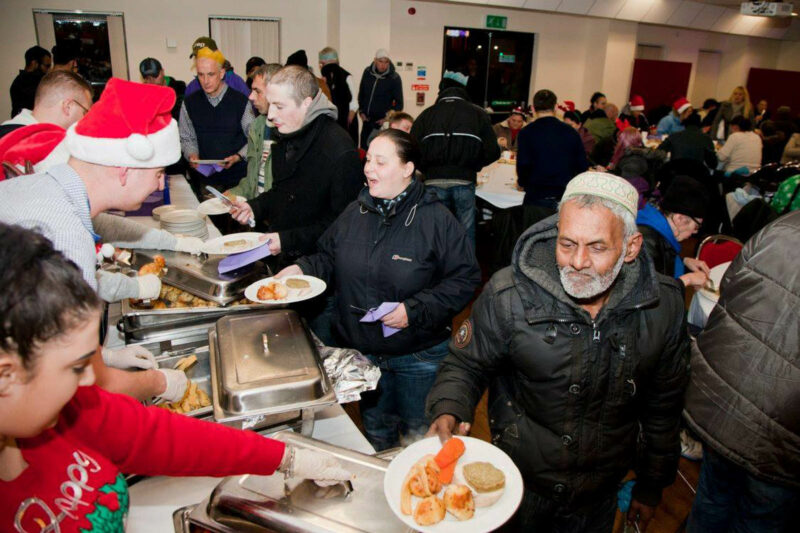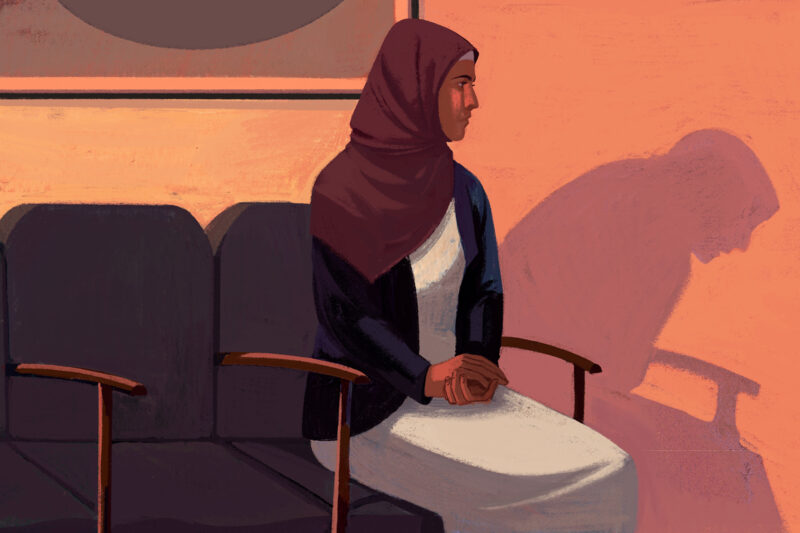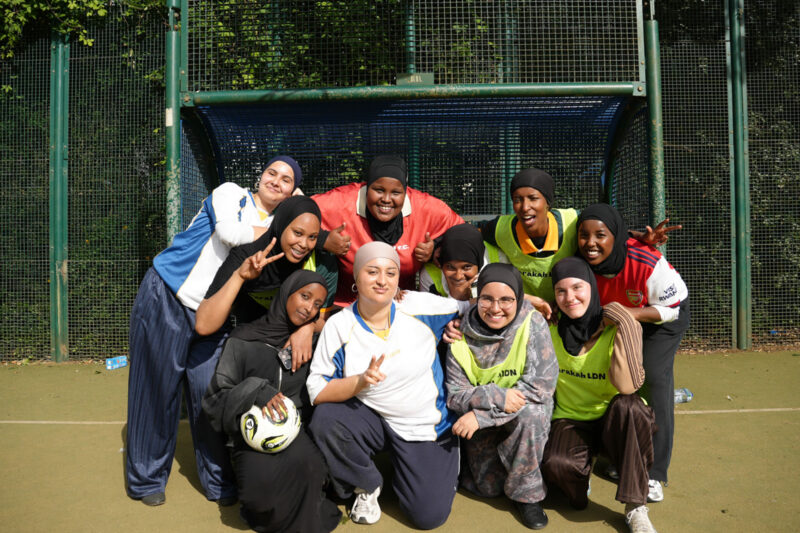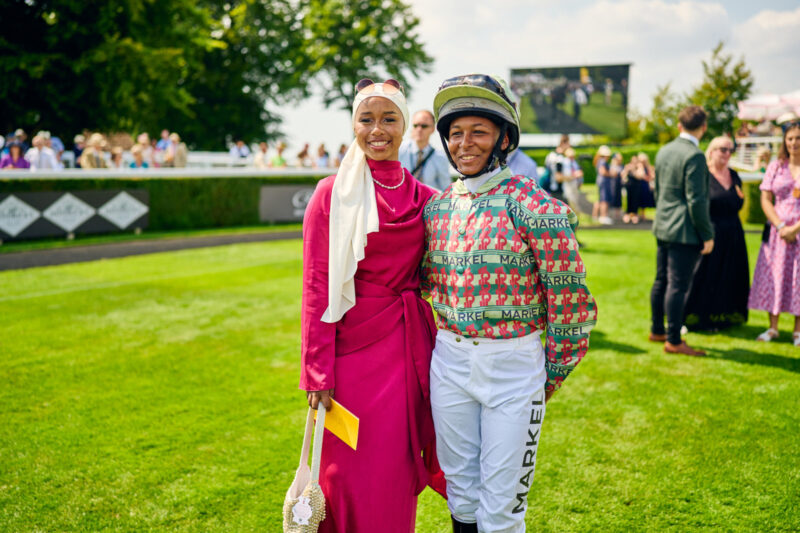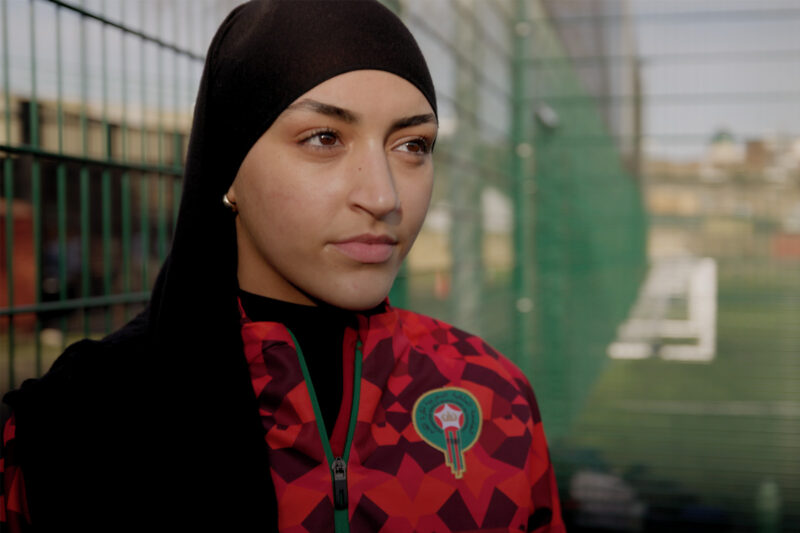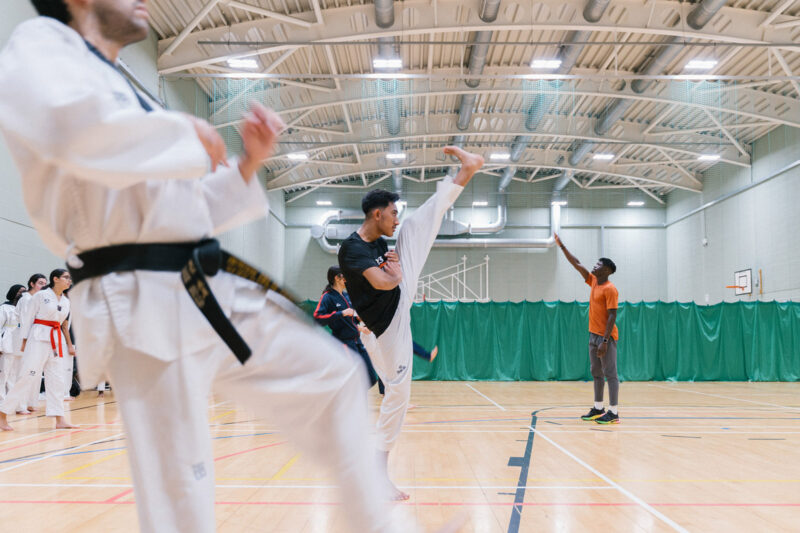How one Liverpool football club is kicking down mental health stigma
Set up by two young Muslims, Granby Toxteth Athletic draws on the city’s community spirit to help young people
–
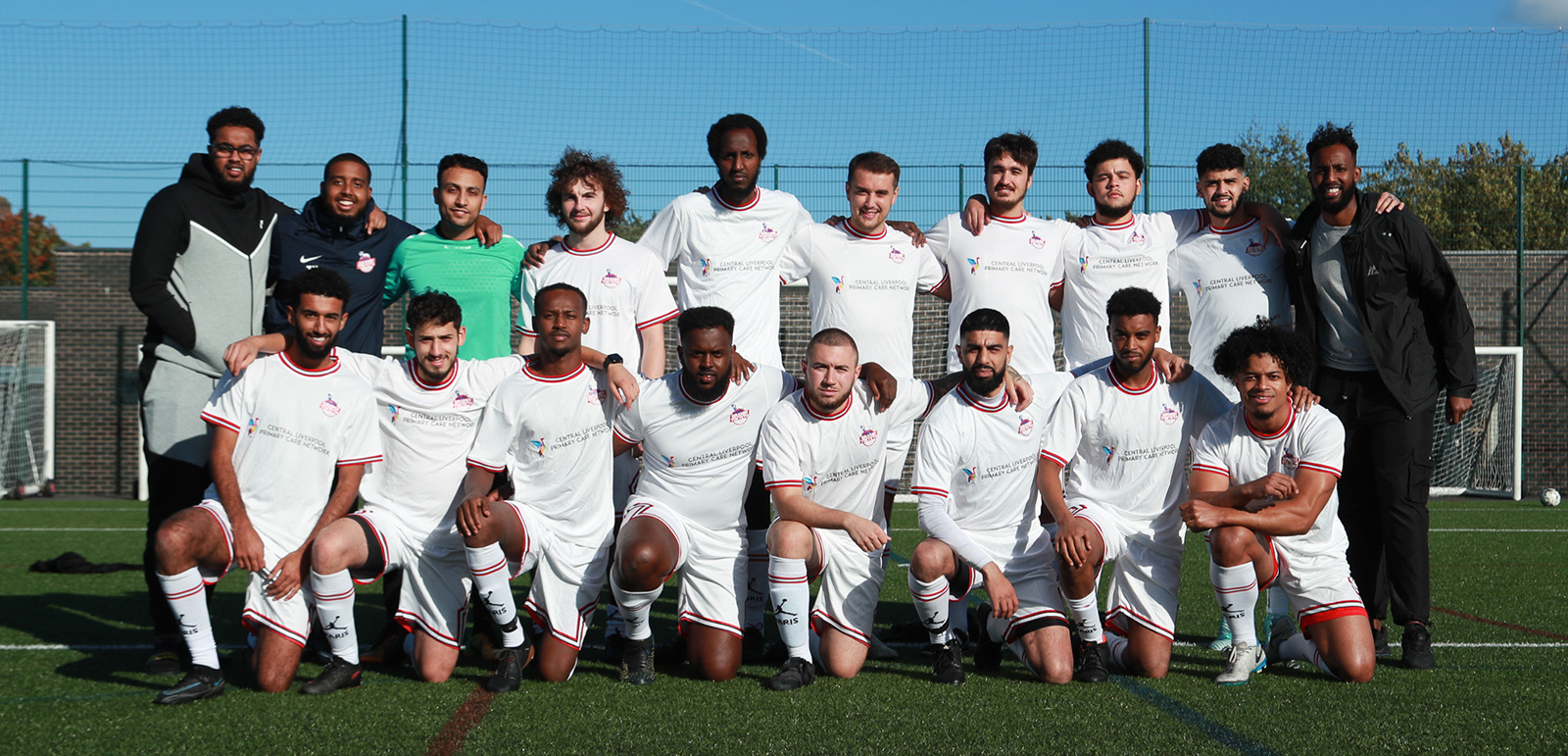
In the early 19th century, Liverpool was known as the New York of Europe. Built on the south bank of the river Mersey, it is Britain’s original international city and home to a port that, at one point, handled 40% of the world’s trade. Richer than London at the time, its wealth was largely amassed from the shipping of goods from the British empire and as a historic hub of the transatlantic slave trade.
This dark past also brought with it a unique diversity, as seamen from around the world visited and chose to stay. As a result, Liverpool boasts one of the oldest continuous Black communities in Europe, established more than 300 years ago by loyalists from the American revolutionary war and growing to include arrivals from East Africa and the Caribbean. Despite their enduring presence in the city, however, life has not always been smooth sailing for Black Liverpudlians.
Toxteth, which lies just south of the centre, is one of the city’s most racially heterogeneous neighbourhoods and a longstanding hub of the Black community. Its streets range from grand Georgian townhouses to squat red-brick terraces, built for Victorian-era dock workers. It is also well known for the riots that set them ablaze in 1981, sparked by years of neglect, economic deprivation and discriminatory policing targeting young Black men.
While many of these problems persist, the area has a reputation as a proud and tight-knit working-class community that takes care of its own. Little embodies that spirit better than Granby Toxteth Athletic (GTA), a football club in the eight-team Liverpool County Premier League. Set up a year ago by two young Muslim volunteers, it aims to bring communities together and improve the mental health of local people.
In late September, I was in Liverpool for a rally concerning the ongoing UK cost of living crisis, held alongside the annual Labour party conference. I was also lucky enough to visit the Tiber Football Centre to watch GTA play a home fixture against Salisbury FC. One of the club’s founders, 23-year-old Zak Hassan, greeted me warmly and told me all about its mission.
“Thanks to the pandemic, issues around mental health have been on the rise,” he said. “We’re using sport to tackle it, with football, basketball and yoga. Sometimes we do educational sessions for the kids, too.”
Rather than hold formal sessions to discuss mental health issues, the club favours an organic approach, creating a safe space where young people can build relationships and reach out for support when they need it. As Hassan explained, many people find it easier to talk about their issues in a familiar environment with a trusted friend than to go to a doctor. That initial sense of ease creates a valuable opportunity for Hassan to direct or personally refer vulnerable individuals to appropriate mental health services.
The warm, collaborative spirit of Granby Toxteth Athletic was clear to see as the game against Salisbury FC drew to a close. After conceding an early goal, the team won 5-2; its first victory of the season. The players — a mix of young Black, Arab and white men — celebrated with hugs and fist-bumps.
It was a big day for other reasons, too. The team was debuting its new kit, produced in partnership with the Central Liverpool Primary Care Network, an umbrella group of GP practices that works with community organisations to address health inequalities in the city.
Hassan was beaming with pride in his players, but also in the crowd on the touchline. “As you can see, a lot of people here are coming out to support the community, getting to know each other and making friends,” he said. “Our players come from different nationalities, different religions. That’s the aim — really bring people together, spread love and positivity.”
Leaving Liverpool, I remained intrigued by the team and its work. A fortnight later, on a sunny Saturday afternoon, I found myself back in the city sitting with Hassan and club co-founder Yusuf Yassin, 28. We met in one of their favourite spots: the Coffee Lodge on Lodge Lane, a main street that cuts through Toxteth, lined with Middle Eastern supermarkets, halal butchers and restaurants selling food from countries ranging from Afghanistan to Yemen.
Both men were wearing navy Nike coats and shorts emblazoned with the GTA logo. In a few hours’ time, their team would be playing another home game against fellow Liverpool side FC King Harry.
Yassin and Hassan are both British Somalis, a community that was established in Liverpool two centuries ago, when sailors from the country began to settle there.
“My grandad was a seaman,” Yassin said. “That’s what brought him here — to work on the ships.”
It wasn’t until the 1990s, however, that Somalis came to the city in large numbers, escaping the civil war ripping through their country. From Irish migrants fleeing the Great Famine of the 1840s to Iraqis, Yemenis and Syrians driven from home by present-day conflicts, Liverpool has long provided a place of refuge for people in need. For many, however, it has not always felt entirely welcoming.
“Growing up in the city, I felt like it was kind of racist,” said Hassan, explaining that much of the prejudice he faced occurred when he had ventured into other, less diverse parts of Liverpool, or came from heavy-handed local police. “The school we went to was three miles away and we always felt like we didn’t belong there. We felt like trespassers.”
In contrast, both he and Yassin have always been at home in the racial and religious mix of Toxteth. The desire to channel that sense of community into something concrete is what gave birth to Granby Toxteth Athletic. Aiming to address a spike in cases of depression and anxiety that accompanied the Covid-19 pandemic, Hassan and Yassin launched the club in September 2021.
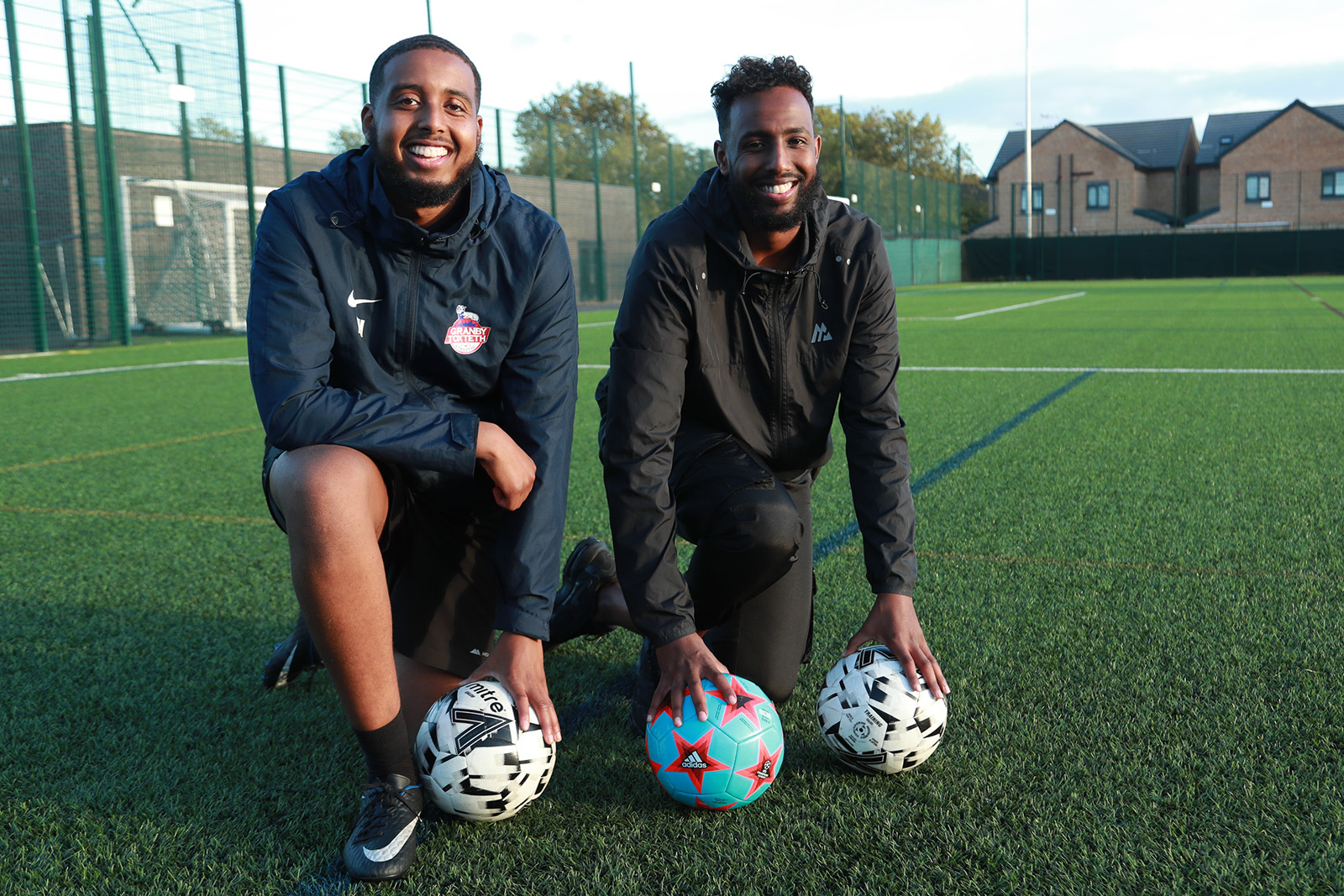
GTA’s emphasis on improving the mental health of local people has led to productive relationships with a variety of partner organisations. First Person CIC, a local charity, recognised the work the club has been doing and, in August, paid for Hassan, Yassin and two other coaches to get their FA level two awards for first aid in mental health.
The programme equipped them with the tools to recognise the symptoms and effects of various mental health conditions. They also discussed the importance of honesty and openness in addressing the disproportionately poor mental health outcomes of ethnic minorities in the UK.
“It means we’re equipped,” said Yassin. “We’ll have conversations. We’re able to direct people to the appropriate services if they’re struggling.
“I see it in my own community a lot. Schizophrenia, paranoia, psychosis. There’s a stigma that’s attached to these things. People don’t want to talk about it.”
According to new research by Greater Manchester Mental Health NHS Foundation Trust, Black people in the UK are four times more likely than their white peers to be sectioned or prescribed antipsychotic medication, rather than talking therapy. According to the mental health charity Mind, they are also 40% more likely to access treatment through police or the criminal justice system, to be compulsorily admitted for treatment, to be placed on a medium or high-security ward and, once there, to be subject to seclusion or restraint.
According to Hassan, being at the sharp end of these statistics has led to a widespread fear and mistrust of mental health services within affected communities. The aim of Granby Toxteth Athletic is to confront taboos surrounding mental health and to build bridges between government services and diverse communities.
To do this, Hassan has drawn on his experience as an outreach worker on a government-supported programme during the pandemic, tasked with combating disinformation and resistance surrounding the national vaccination programme.
“I’m lucky because I have the trust of my community,” he said. “It’s always better when it comes from someone they know. We know how to spread a message and we know how to get people together.”
GTA’s motto is “Representing the Unrepresented”. The team makes good on that promise by involving people from across the area, regardless of their background or sporting prowess. Alongside football, the club has a basketball team and plans to start a yoga club for Muslim women. All of its initiatives so far have been met with great enthusiasm.
“Football’s only 20% of it,” Yassin added. “We’re building a platform. We felt there was nowhere that represents our community.”
The club also arranges walks to national parks around the UK.
“Once a month, around 40 of us will walk and talk,” said Hassan. “We arrange lunch and refreshments. We’ll see these beautiful landscapes and everyone’s having a good time.”
One day during Ramadan, GTA provided 100 meals for local people in need, visiting Afghan resettlement homes and hostels for unhoused people across the city.
“We did it to spread the message of love and explain what Ramadan is all about,” said Hassan.
All this organising takes resources. While the club has received support from local businesses, councillors and the Liverpool Somali organisation Kaalmo Youth Development, securing adequate funding, which often requires a considerable amount of paperwork, remains a constant battle.
“We want to do things for ourselves,” Hassan said. “I don’t have any experience in bid writing, but I try to do things to the best of my ability.”
For Hassan and Yassin, however, some things are much more valuable than money. Both explained that playing matches against local teams has allowed GTA and its members to build relationships with communities across Liverpool.
For instance, a few weeks ago the club had its first basketball fixture at a community centre in Aintree, a predominantly white area a few miles away from Toxteth.
“I was waiting outside to pick up our kits,” said Hassan. “I was wearing my new thobe and these white kids turned up on bikes, spudding me and asking me if I was a priest. We all burst into laughter.
“I explained that it’s a robe that Muslims wear and that it’s really comfortable. One of the lads said, ‘I want one of them.’ Most people are just curious — they’ve never come across people that look like me.”
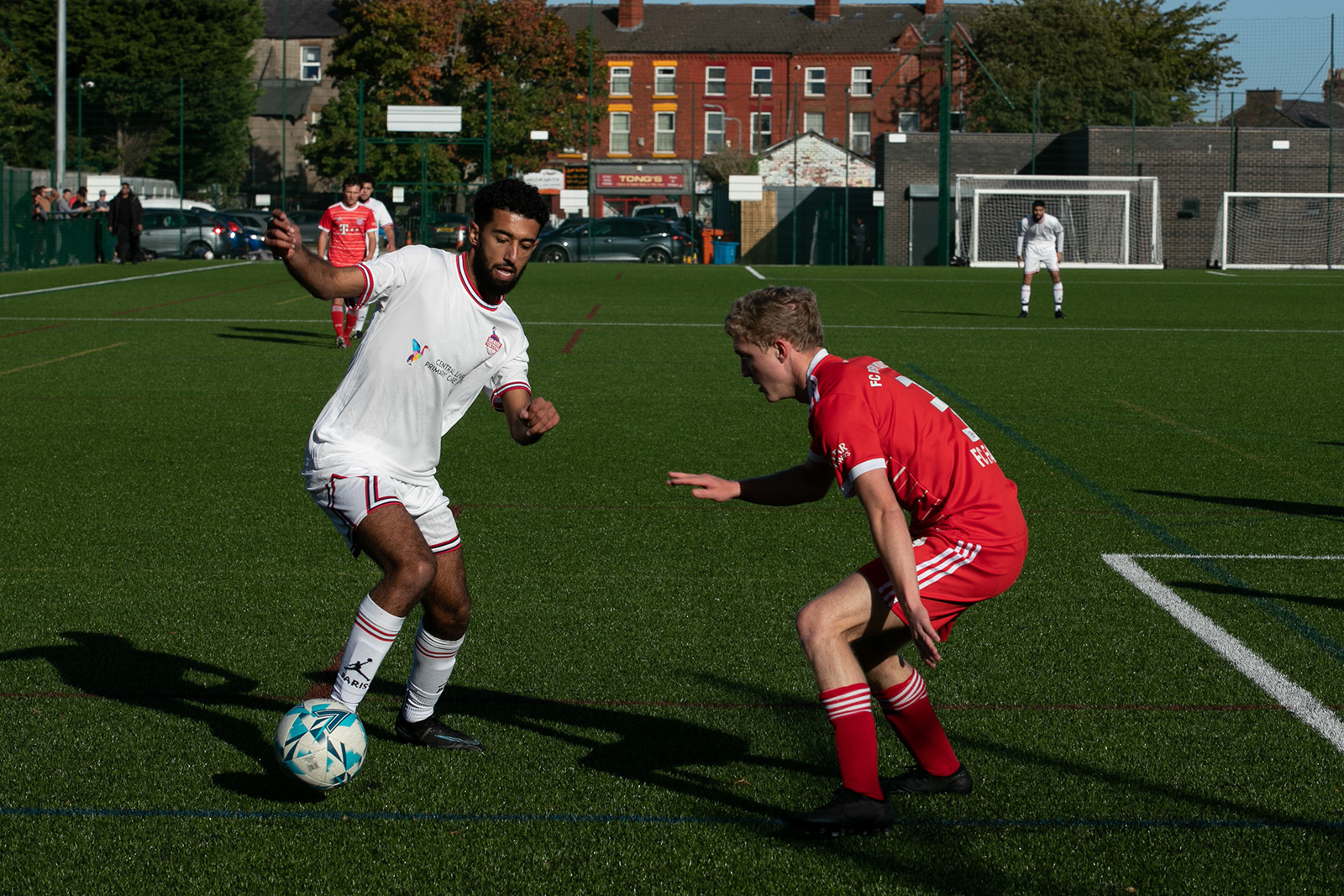
Back at the Tiber Football Centre before kick-off, I met GTA’s 23-year-old winger Kassim Jebrin. He and his teammates were busy warming up for their match against King Harry FC, but that didn’t stop him telling me of his fondness for his neighbourhood.
“I love Toxteth,” he said. “I’ve lived here my whole life. My dad’s Iraqi and my mum’s Yemeni. There are so many diverse cultures in the area. It’s a place that makes everyone feel welcome.”
While studying for a degree in sport, business and finance in Manchester, Jebrin volunteered as a case worker for the Rio Ferdinand Foundation, which supports young people in disadvantaged communities. In this role, he supported asylum seekers as a translator and got them involved in community sports. He has brought that experience to Toxteth, helping to bring refugees with language barriers to the club.
“I’ve brought two lads into GTA,” he said. “The great thing about our team is that we have individuals speaking so many different languages. It’s easier for people to fit in. There was an Egyptian lad who struggled to speak English. Ever since he joined, he’s understood his role in the team and it’s given him confidence in communication, which he can apply outside the club.
“I see this club as an opportunity to combine what I love — football — with doing something for the community. From our starting 11, here on the pitch, I can name eight nationalities. That speaks for itself.”
Attacking midfielder Laith Alabaid agrees wholeheartedly. “This club brings everyone together,” he said, explaining that he was born in Toxteth, but had spent much of his life in Yemen, where his father was from. When he moved back to Liverpool with his family in 2017, he felt extremely isolated.
“For the first few months I was alone all the time, because I didn’t really know anyone,” he said.
Fortunately, Alabaid lives close to GTA’s ground and, one day, he went to see the team play. Hassan wasted no time in inviting him to join the lads for training and, now, the rest is history.
“It’s really helped me to settle in here and meet new people. The atmosphere here is brilliant.”
When GTA kicked off, it seemed clear that they had put a slow start to the season behind them and got into a new groove. The match was one-sided from the outset. A tight unit at the back gave the forwards the kind of security that allows for some seriously energetic attacking play, including a superb 60-minute goal from Alabaid
GTA won 4-1, the team’s second victory of the season putting them fourth in the league. The players and fans were ecstatic. As I watched this diverse group of people celebrate, united by a love of sport and a genuine feeling of community, I couldn’t help but think of something Zak had told me when we first met: “This is what Toxteth is all about.”
 Newsletter
Newsletter

